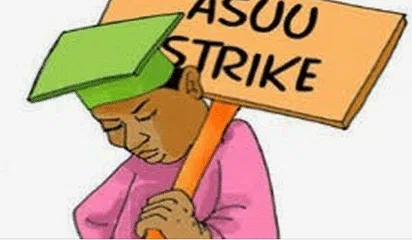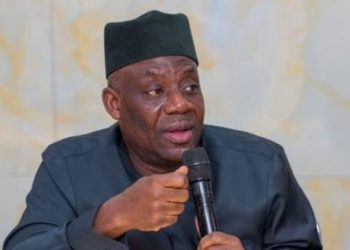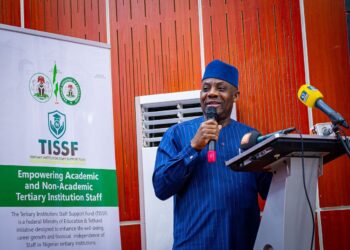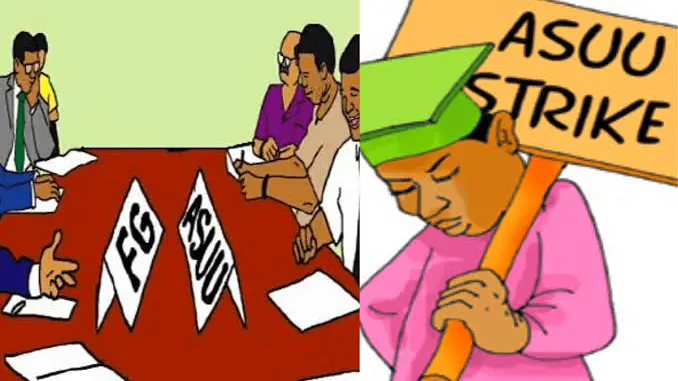The Academic Staff Union of Universities has issued a stern warning that it will resume its suspended nationwide strike if the Federal Government fails to meet the union’s demands before the expiration of a one-month ultimatum.
Multiple ASUU zones across the country have expressed frustration with what they describe as the government’s sluggish approach to addressing critical issues affecting university lecturers and the broader higher education system.
Abdulkadir Muhammad, ASUU’s Kano Zonal Coordinator, delivered the warning on Tuesday during a press briefing in Kano following a zonal meeting that brought together representatives from seven universities including Ahmadu Bello University Zaria, Bayero University Kano, Kaduna State University, Aliko Dangote University of Science and Technology Wudil, Federal University Dutse, Northwest University Kano, and Sule Lamido University Kafin Hausa.
The union had suspended its warning strike in October, granting the government a month-long grace period to address demands centered on lecturers’ welfare and creating conducive teaching and learning environments across Nigerian public universities.
Muhammad revealed that the decision to threaten strike resumption followed deliberations at ASUU’s National Executive Council meeting held on November 8 and 9 at Taraba State University, where members expressed deep dissatisfaction with the pace of ongoing negotiations.
“However, our hope for a holistic and timely resolution of the issues is increasingly being dashed. It is unfortunate that some government functionaries employ different tactics to undermine the renegotiation process and misinform the public on the state of our engagements,” Muhammad told reporters.
The Kano zonal coordinator accused the government of lacking genuine commitment to improving lecturers’ welfare or addressing conditions that have accelerated brain drain from Nigeria’s university system, with qualified academics increasingly seeking opportunities abroad.
“What government has offered will neither improve the working conditions of academics nor attract scholars from other countries to our universities,” Muhammad stated, rejecting government claims that significant progress has been made in meeting ASUU’s demands.
He specifically criticized government officials who have publicly suggested that the union’s demands have been adequately addressed, describing such statements as misleading and counterproductive to genuine dialogue.
In an additional demand, Muhammad called on the Federal Government to impose a moratorium on the establishment of new state universities, similar to restrictions placed on federal university creation. “Governors have cultivated the habit of establishing universities in their states without commitment to funding them,” he said, highlighting concerns about the proliferation of poorly funded institutions.
The Benin Zone of ASUU has echoed these warnings, with Zonal Coordinator Professor Monday Lewis Igbafen accusing the Federal Government of demonstrating “blatant unwillingness” to resolve outstanding issues necessary for restoring industrial harmony in Nigeria’s public universities.
Speaking to reporters in Benin City, Edo State, Igbafen described as “wicked and inhumane” the government’s decision to leave university lecturers on the same salary structure for more than 15 years without meaningful adjustments despite rising inflation and cost of living.
The Calabar Zone has similarly threatened action, with Zonal Coordinator Ikechukwu Igwenyi outlining comprehensive demands during a media briefing in Cross River State capital attended by nine other union officials.
“We demand the completion of renegotiation and full implementation of agreements with timelines, as well as fair remuneration and improved work conditions for academic staff to curb the exodus of talent,” Igwenyi stated, warning that failure to comply would trigger another round of industrial action.
ASUU’s demands extend beyond salary negotiations to include immediate release of three and a half months’ outstanding salaries and all withheld salaries from previous strikes, refund of third-party deductions, and payment of promotion arrears owed to numerous lecturers.
The union is also demanding payment of outstanding 25-35 percent wage awards with consequential adjustments, adequate budgetary allocation to the education sector, and sustainable funding mechanisms for Nigerian universities.
Additionally, ASUU has called for respect for university autonomy and an end to what it describes as the imposition of policies that undermine academic freedom in higher institutions.
“We gave the government a four-week ultimatum to address these issues… We shall remain unbowed, unbroken, and unwavering in this just struggle, with profound faith, secured in the knowledge that victory is sure,” the Calabar Zone declared in its statement.
The coordinated warnings from multiple ASUU zones suggest that the union’s National Executive Council may be preparing for a return to industrial action if the government does not demonstrate concrete progress on negotiations before the ultimatum expires.
The October suspension of strike action was presented as a gesture of goodwill toward Nigerian students and parents, creating what the union hoped would be an enabling environment for meaningful negotiations.
However, union leaders across various zones now express regret over what they characterize as the government’s failure to capitalize on this opportunity, instead employing delay tactics and making public pronouncements that misrepresent the state of negotiations.
The threat of renewed strike action comes at a particularly challenging time for Nigeria’s education sector, which has faced repeated disruptions over the years due to industrial disputes between ASUU and successive governments over funding, infrastructure, and working conditions.
Students and parents have borne the brunt of these conflicts, with academic calendars frequently disrupted and graduation timelines extended, contributing to frustration and calls for permanent solutions to the recurring crisis.
As the one-month ultimatum approaches its expiration, attention now focuses on whether the Federal Government will accelerate negotiations and make concrete commitments that satisfy ASUU’s demands, or whether Nigerian universities will once again face closure due to industrial action.
The union’s reference to maintaining faith that “victory is sure” suggests a determination to pursue its demands to conclusion, regardless of how long the struggle may take—a stance that could signal extended disruption if the government does not respond satisfactorily.



















